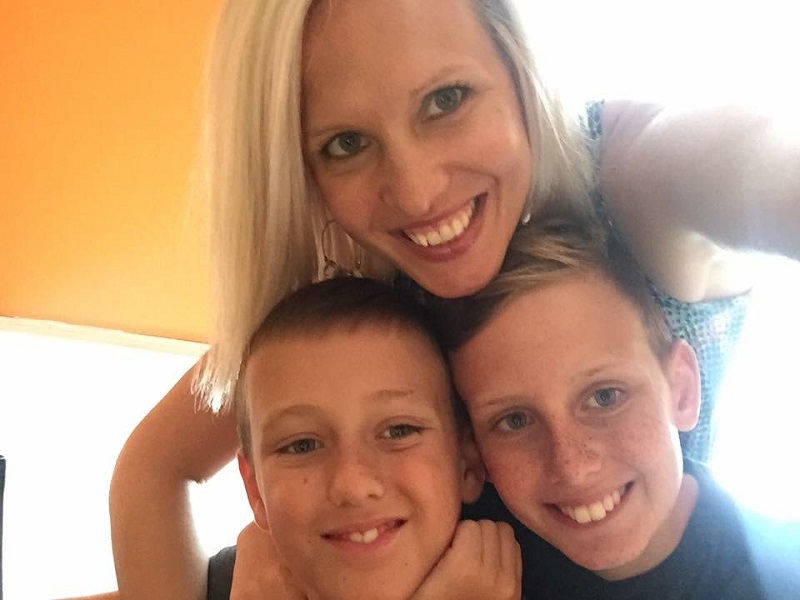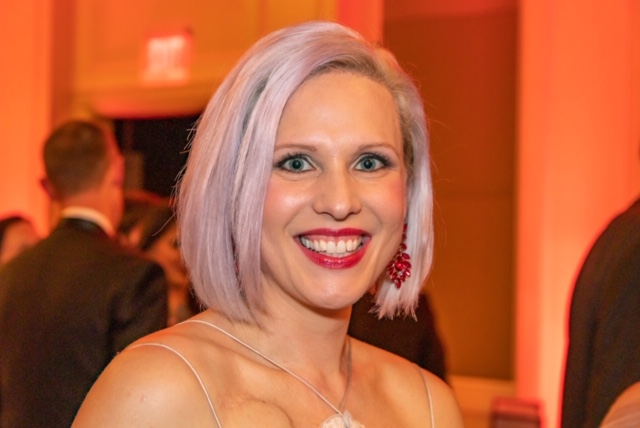When dancer kept fainting, an EKG finally revealed why
By American Heart Association News

Looking back, Daniela Leonhardt's first indication something was amiss with her heart happened in December 2010, when she fainted before an Irish dance competition.
At the time, she was 30 years old, the mother of two little boys and in jaw-droppingly good shape. Why would she have thought the dizziness and nausea that followed her fainting spell could be a sign that her life was in danger?
"I had been a competitive dancer a long time, then after having kids, I decided to go back to it," said Leonhardt, who lives in Virginia. "I wanted to prove that at age 30 I could still compete with younger women."
She was well on the way, until she fainted.
"I wrote it off as maybe being under the weather," she said. "A lot of people had gotten sick at that competition."
To be sure that's all it was, she went in for a checkup. Her doctor attributed her symptoms to anxiety or possibly a virus. Two months later, Leonhardt fainted at a conference in Louisiana. Again, her symptoms were thought to be anxiety, or maybe something hormonal.
The episodes continued, eventually occurring about once a week. Leonhardt would feel lightheaded at a grocery store and sit down in the middle of an aisle. At home, she'd hold onto furniture and try to breathe through the dizziness.
In May 2012, Leonhardt went to an urgent care clinic. The physician's assistant gave Leonhardt her first electrocardiogram.
The PA rechecked the leads, as if they might have been out of place. He then asked the nurse to run the test again.
Looking at the results, the PA said, "I'm amazed you're sitting here acting totally normal." Her heart rate was only 32. A normal rate is 60 to 100.
Doctors diagnosed her with a condition that keeps her heart rate low. A pacemaker was implanted in June 2012 to help sustain a healthy rhythm.
Waking up from that procedure, she felt better than she had in years. She looked at her husband and said, "This is what it feels like to be normal."
The next day, she told herself, "This is not happening to another woman," and began volunteering for the American Heart Association.

In February 2014, while in Atlanta for work, Leonhardt didn't feel right. She eventually was diagnosed with a type of fast heart rate called supraventricular tachycardia. She had heart surgery that November.
Four months later, Leonhardt woke up and fell out of bed. Her left side wasn't functioning. She was having a stroke.
Her son Ciaran Donovan was 8 at the time. Because of the family's involvement with the AHA, he recognized the warning signs.
"Mom," he told her, "I'm going to call 911."
She hung up the phone and called her sister instead – a move her neurologist told her could have killed her.
Leonhardt was fortunate; the stroke seemed to have "resolved itself." While her left hand doesn't grip as strong, and she occasionally mixes the three languages she speaks – English, German and French – there are no other long-term effects. Doctors determined the stroke was caused by atrial fibrillation, a common irregular heartbeat, so they put her on blood thinners.
Ciaran is now 12; his brother Landen Donovan is 9. They keep an eye on her, making sure she rests and doesn't overdo it.
"There are a lot of doctor trips and worrying about our mom," Ciaran said. "The pros are that we learned a lot from this. We know heart disease is out there and it can do to others what it did to my mom."
Said Landen: "The positive is that we know about heart disease and we get to go to the Heart Walk, which is really fun. The negative is that at any moment it could happen again."
But like their mother, the boys are optimistic. And, like her, they've gleaned lessons from the ongoing experience.
"They're more aware. They have a little more mitgefühl, as they say in German," said Leonhardt. "It's an understanding of a situation and having true empathy, even if you're not living it."
Stories From the Heart chronicles the inspiring journeys of heart disease and stroke survivors, caregivers and advocates.
If you have questions or comments about this story, please email [email protected].





